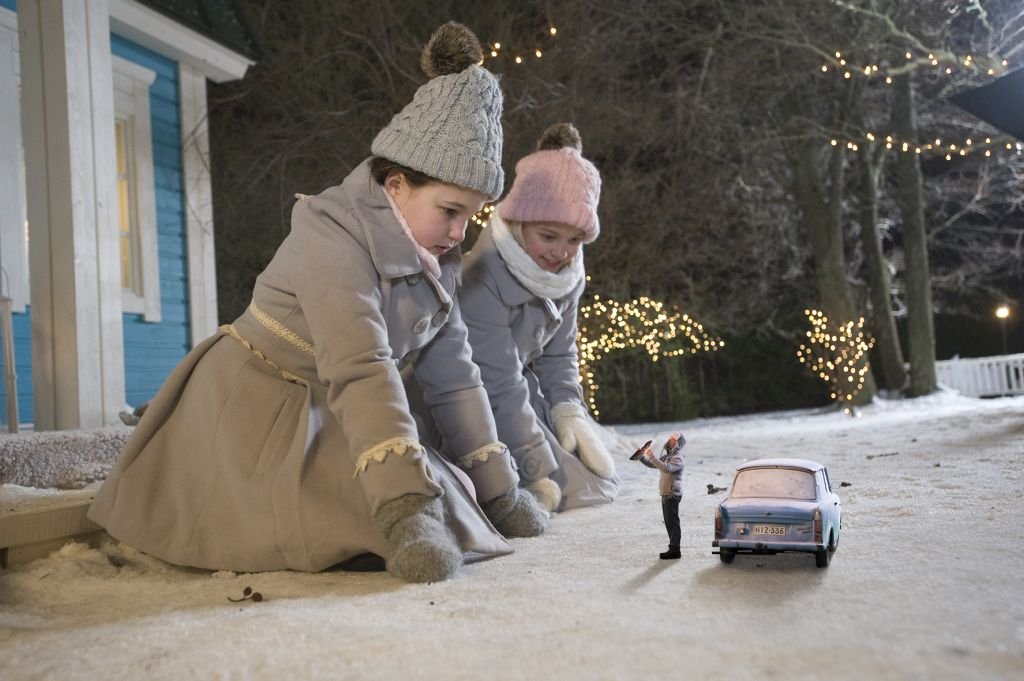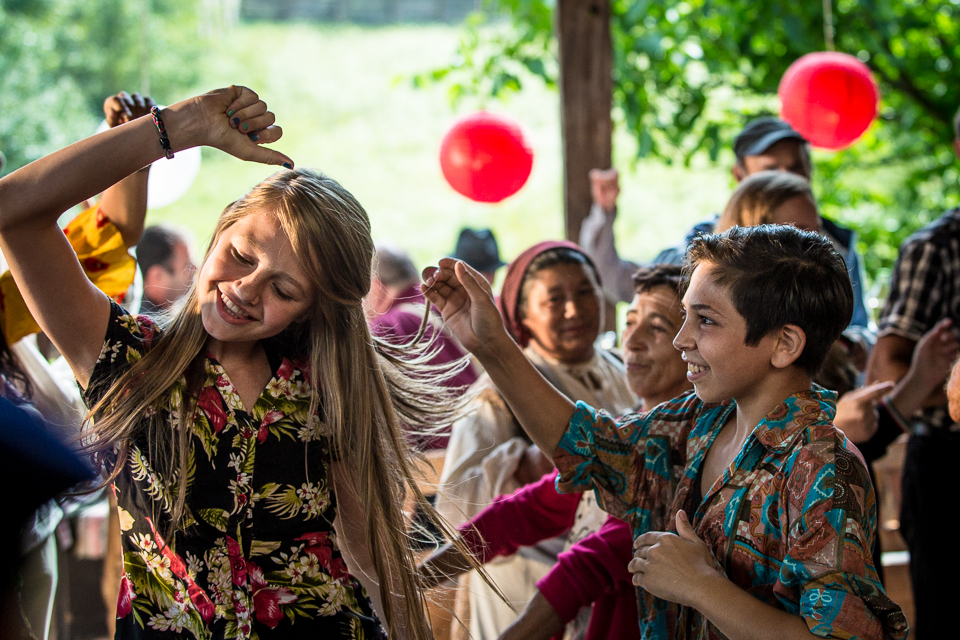
Story is the way that humans of all ages come to understand the world around them, and the visual storytelling of film is an especially powerful tool for generating empathy and compassion.
“Now more than ever, we need global awareness, and Northwest Film Forum is completely about embracing global culture,” says Elizabeth Shepherd, youth programs director at Northwest Film Forum. Through its annual Children's Film Festival Seattle, which runs from Jan. 26 through Feb. 11, Northwest Film Forum shares nearly 200 stories from around the world that celebrate diversity, encourage inclusion and teach kids about the world. And since these films will likely spark a longing to make a difference, we've found cool opportunities to take action and give back.
An inclusive beginning: shorts and dance
This year, opening night of the festival celebrates a new partnership with the PLURAL+ Youth Video Festival screening “Longing and Belonging,” a showcase of prizewinning short films made by young people around the world. The films carry themes of migration, diversity and social inclusion, and tell stories of Middle Eastern refugees, young indigenous activists and more (Thursday, Jan. 26, ages 12 and older).
“The program also communicates how the act of filmmaking can be, in and of itself, a really valuable response to situations,” Shepherd says.
If your kids aren’t old enough for the opening night, the second night of the festival there is a free, all-ages dance party (Jan. 27, 7 p.m.), where pajama-clad cinephiles can get down to kindie rock (Caspar Babypants and Recess Monkey) while grownups can meet visiting filmmakers and everyone can enjoy cupcakes and popcorn.
Inclusion for all ages: family, friends and pancakes

Thaw that Seattle Chill with coffee and pancakes on Saturday, Jan. 28, at the Pancake Breakfast and Short Film Smorgasbord. The cost ($55 per family of four) includes breakfast and a screening of the short films program Friends are Forever (ages 5 and older, also showing Feb. 1 and 4). The mostly animated program shows that friends come in all shapes and sizes, and includes The Musical Dragon, a profound lesson in accepting differences that uses no dialogue at all.
For the youngest children, inclusion begins at home with the English-language Molly Monster, (Germany/Switzerland/Sweden, ages 2 and older, Feb. 5); the title character must learn to welcome a younger sibling. The program “Family Time” (5 and older, Jan. 28 and Feb. 4) celebrates the love that all different kinds of families share in shorts from around the world with a mixture of English, no dialogue and limited subtitles.
The sweet animal characters in Creature Teachers (2 and older, Jan. 28 and Feb. 1) explore friendship and everyday adventures. Another shorts program, No Bullies Allowed (8 and older, Jan. 28 and Feb. 4), shows kids defeating bullies in creative ways.
Inclusion makes a fanciful appearance in Mr. Frog (Netherlands, 8 and older, Feb. 4) about schoolchildren protecting their beloved teacher, who sometimes transforms into a frog, from dangers both natural and administrative.
Jill and Joy's Winter (Finland, 7 and older, Jan. 29) is based on a Finnish children’s book about two little girls who must protect a family of tiny people. If not for the subtitles, the whimsy and humor of these movies would be appropriate for all ages.
Risk and refuge: kids take action
The festival includes several features that dig a little deeper into the stories of displaced and marginalized people. Fortune Favors the Brave (Germany, 10 and older, Jan. 29) shares the story of undocumented sisters avoiding deportation while their mother is dealing with a family emergency in Vietnam.
In the documentary Mussa, (Israel, 11 and up, Jan. 29) an Ethiopian boy living in Israel responds to his uncertain circumstances by refusing to speak, even though he understands multiple languages.
For lighter fare, Nelly’s Adventure (Germany, ages 10 and up, Jan. 28) unites a German girl with a pair of Roma siblings against a villain who wants to destroy her father’s clean energy project.
The shorts program “Dreaming of a Better World” (10 and up, Feb. 4 and 11) gives kid-sized illustrations of real-world issues and shows kids — particularly, migrants, refugees and survivors of war — overcoming serious challenges. The films in “Destination” (7 and older, Jan. 28 and Feb. 11) show children around the world adapting to their environment, and when they can’t adapt, changing it.
Identity: finding acceptance and belonging
Figuring out who you are and where you fit in society is a challenge with which all young people can identify. Teens will be drawn to the true story of Sadaf, a young Afghani boxer who risks her life to pursue her passion in Boxing for Freedom (Spain, 12 and older, Feb. 4).
In the Indigenous Showcase documentary, In Football We Trust (U.S., ages 12 and up, Feb. 1), football may mean the difference between a life of poverty and gang violence or a life of wealth and fame for four Polynesian high school students in Utah.
Three more shorts programs — “Gotta Be Me” (ages 7 and older, Jan. 29 and Feb. 1), “Shine On” (2 and older, Jan. 29 and 31) and “True to Yourself” (ages 12 and up, Jan. 28 and Feb. 1) — feature characters who protect what is unique in themselves and learn how to get along with everyone else in age-appropriate stories.
Festival tips
Age recommendations for films are provided by Northwest Film Forum as guidelines, and specific information about language, nudity and themes is provided in the online description of each feature and shorts program. You can use that information to decide whether a film is a good fit your family.
Shepherd encourages families to stretch a little and try new things. “Let kids listen to the music of other languages,” she says. A few whispered explanations are often enough to get a pre-literate child through a subtitled movie when the visuals are engaging.
Shorts collections are great for exploring new things without testing kids’ patience. The title of each program signals the theme uniting the shorts in the collection. All the shorts programs include an international mix of films and most include a combination of English, subtitled and dialogue-free films.
Turn inspiration into action: Volunteer opportunities for kids
Stories like the ones included in this year’s festival can galvanize viewers’ intent to make a difference, so we’ve paired our film recommendations with practical advice to help your family move from inspiration to action.
• Show kindness. You can make a list with your children of ways they can show kindness to each other and to classmates. Immigrant children, for example, often miss out on social experiences outside of school. Check with your child and their teacher to find out if a little extra effort can help integrate a child into social activities.
• Help refugees. Families can work together to raise money for the United Nations Refugee Agency or another relief agency working in Europe. Closer to home, the International Rescue Committee in Seattle is one of nine refugee resettlement organizations in the U.S. Your family can work to gather the household items that newly arriving refugee families need to get settled in a new home.
• Work for peace. Get involved in peace organizations like Kids4Peace or Peace Action. Anyone who is old enough to write can help protect human rights through Amnesty International.
• Help the needy. Contribute to your nearest food bank or homeless shelter. Contact them ahead of time to find out what they most need. Children can help you collect and deliver the needed items.
• Help animals. Encourage young children to give pets a little extra love. Older kids can go a step further and try one of Seattle Humane Society’s recommended actions, such as running a pet food drive or making toys for shelter cats.
• Volunteer. Minimum age requirements limit volunteering options for younger kids, several local organizations welcome teen volunteers. Lambert House, the community center for GLBT youth, has regular volunteer opportunities and paid internships. Volunteers at TeenFeed prepare and serve meals in Seattle and Auburn to homeless teens. Seattle Parks Department and the City of Bellevue offer service learning opportunities. Whatever your teen’s interest, there is probably an organization that wants their help.











